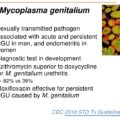What is HIV?
HIV stands for “Human Immuno Deficiency Virus” it is the causative agent of AIDS.
What Does AIDS Stand For ?
AIDS stands for “Acquired Immune Deficiency Syndrome”. It is caused by the HIV virus which weakens the immune System (body’s defence mechanism) and makes a person susceptible to all kinds of infections.
How is HIV Transmitted?
HIV can be contracted by the following ways:
- During sexual intercourse with an infected person (vaginal,oral and anal).
- During transfusion of an infected blood
- By the use of contaminated and un-sterilized sharp instruments such as syringes.
- From infected mother to child during pregnancy, child birth or breast feeding.
How is HIV not transmitted?
HIV cannot be transmitted by
- Mosquito bites
- Handshake with an infected person
- Cloths
- Sharing toilet seats with an infected person
- Hugging an infected person
- Eating or playing with an infected person
HIV and mosquitoes
For an infectious agent to be transmitted by a mosquito from one person to another, it must remain viable inside the mosquito. This is however not true for the AIDS virus as the mosquitoes treats the virus as food which is digested along with the blood meal. 70 to 80%of HIV infected persons have undetectable virus particles in their blood. Calculations have shown that a mosquito that is interrupted while feeding on a HIV carrier circulating 1000 units of virus has a 1: 10 million probability of injecting a single unit to an HIV free recipient, that is to say an individual has to be bitten by 10million mosquitoes that has began feeding on a HIV carrier to be infected.
Furthermore, the mechanism utilized by mosquitoes during feeding differs greatly from the mechanism employed by the drug user’s needle. This is because it delivers salivary fluid through one passage and draw blood up another as such the food canal is not flushed like a used needle and blood flow is unidirectional. In simple languagemosquitoes do not transmit HIV.
HIV and Kissing
Although the risk of transmission is very low, the presence of sores or abrasions on the mouth could make that “simple kiss” deadly. This is because the virus is present and active in all body fluids of an infected person although in varying concentration. Read :Can You Get HIV From Saliva
Diagnosis
This is usually carried out using immunochromatographic strips which determines the presence of the antibodies in the bloodstream (ELISA).This test is usually confidential and often requires the consent of the individual after proper counseling. Other methods include western blot and the use of the PCR machine.
Signs and Symptoms
When an individual is infected with the virus that does not imply that he or she has AIDS. The individual is simply HIV infected.AIDS which is the final stage of the infection has the following symptoms.
- Prolong diarrhoea
- Oral thrush
- Lymph gland enlargement
- Persistent fever
- Persistent cough
- Skin infections
- Unexplained weight loss
See: HIV Symptoms After 3 Months
Phases
There are four phases of the infections,
Window period: This could last for about 3-6 months after exposure to the virus. During this period laboratory diagnosis often appear negative.
Healthy stage: During this period an individual appears healthy and may remain so for 3-10 years this is however dependant on nutrition and lifestyle.
Unhealthy stage: During this period the individual fall sick very often as the virus weakens the immune system.
Full blown AIDS: This is the final stage of the infection. It has duration of 12-24 months.
HIV AIDS Treatment and Prevention
The best and safest means of preventing HIV infection is ABSTINENCE from sexual intercourse for unmarried people and FAITHFULNESS among married couples.
Condom and HIV
Some researchers have argued that condoms do not prevent the transmission of HIV. Their argument is based on the size of the virus. They argue that because of the minute size of the virus (0.1 microns or 4 billionth of an inch) it could easily pass through the pores of the condom which is about 450 microns in size.
On the other hand, most researchers agree that since the virus is transmitted via a medium which cannot breach the integrity of the condom then condoms do prevent HIV transmission. Nevertheless, it is generally agreed that a ruptured or leaking condom is a health risk that those who belong to the famous “I no fit hold body” club must face.
Whichever side of the divide you belong, it is advised that you fully explore the option of abstinence which is the safest means of prevention before resorting to condoms.
Microbicides
These are substances that will be available as creams, gels, films,suppositories or vaginal rings, which if applied vaginally have the ability to reduce the risk of HIV and STIs transmission during sexual intercourse. Some microbicides under development can also act as spermicide which kills sperm cells providing a relative contraceptive cover in the process.
Treatment and Cure
As a cure for AIDS continues to elude Scientists, Antiretroviral drugs continue to play a very important role in the treatment of AIDS patients, reducing the viral load and making treatment for opportunistic infections less complicated. Despite claims both locally and internationally, a curative therapy does not appear to be in sight. However, the Pugnacious claim that sex with virgins can cure AIDS is the greatest deception of the 21st century.
WHAT TO DO WHEN YOU ARE NOT
SURE OF YOUR HIV STATUS
Globally 9 out ten infected people do not know they carry the virus, this is disturbing because early detection in most cases is the difference between life and death.
The first question an individual must ask his or her self is:
What is my HIV status?
If my previous status was negative, have I engaged in any risky behavior that could compromise my initial status?
Nearly everyone I know was afraid of the outcome on
their first HIV test result, so if you are feeling scared, it is completely normal and not out of place. Knowing your
HIV status is very important as it helps you to make the correct decisions about your life.
Another critical question is—When should I get tested?
Most people get tested for the very first time when they are about to get married, this is wrong! There is no guarantee that the results that came back negative before the wedding will not change after the six months window period. It’s important for partners willing to pursue a relationship to discuss their HIV status before committing to the relationship.
Regular testing is a necessity for individuals having unprotected sex and for persons with multiple sexual partners.
So when you are not sure of your HIV status, the most intelligent thing to do is to walk into a testing center and get yourself tested.
WHAT TO DO WHEN YOUR TEST RESULT IS POSITIVE
What is HIV positive ? A HIV positive test result is not a death sentence, many HIV carriers are alive and doing very well decades after they tested positive. Advances in medical science has ensured that HIV positive individuals live a normal life as much as possible. Most test centers have trained and qualified counselors who will guide the individual on appropriate lifestyle changes to make where necessary.
Networking among HIV positive individuals have been shown to positively affect the lives of HIV carriers, these networking programs have not only improved the quality of life among people living with HIV, it has also boosted self determination and personal development of people living with the virus.
Therefore getting involved with the activities of these groups will be highly beneficial to anyone who tested positive.
Taking drastic decision after testing positive can have devastating effects; it is therefore advised that persons who tested positive seek counsel before making major lifestyle changes.
WHAT TO DO WHEN YOUR TEST RESULT IS NEGATIVE
What is HIV Negative ? When the result of a HIV test is negative, it is usually advised that the individual returns after some months for a repeat test. A repeat test is carried out to confirm the result of the initial test. The period between infection and the detection of antibodies within the blood stream is usually referred to as the Window period. During this period antibodies against the HIV virus are not detectable as such the test are usually negative.
A negative result after a confirmatory test does not mean the individual is immune to the virus, it only confirms the fact that the individual is not infected with the virus. Persons who tested negative should note that, it is their responsibility to ensure that they remain negative, as allowing any slip could be deadly. To remain negative you will find the following steps helpful
- Avoid unprotected sex (Vaginal, Oral or Anal)
- Avoid multiple sexual partners
- Avoid injecting drug and illicit substances
- Avoid contaminated sharp objects
- Stay faithful to your partner
- Go for medical check up regularly
- Discuss HIV before committing to a relationship
- Seek counsel whenever in doubt about any issue.
Any information at your disposal that is not used is useless; it is our collective responsibility to ensure an AIDS free world.
Culled from The Unseen Terrorist






Thanks for sharing a wonderful information. I really like read your post, keep sharing such valuable information.